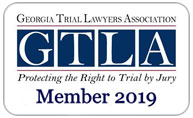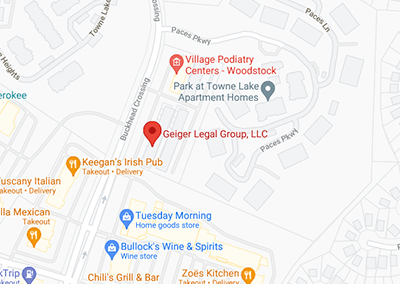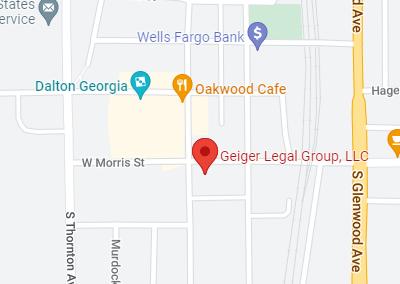How Much Is My Personal Injury Case Worth?

If you have been injured in an accident and are considering filing a personal injury claim or lawsuit, you’re likely wondering how much your case is worth. Given the costs you may have incurred from the accident, this is an important question. But the answer can be complicated.
Depending on the facts of the case, you may be eligible to receive different types and amounts of monetary awards. There are a few important elements that can sway how much your case might be worth, such as the extent of your financial losses, your pain and suffering, and whether punitive damages may be awarded in your case. Not all of those losses have a specific dollar value attached to them. That’s where Geiger Legal Group, LLC can help.
It would be our pleasure to review your case in a free consultation. Call or contact us today to speak with an accomplished personal injury lawyer.
Compensatory Damages in a Lawsuit
Most monetary awards in a personal injury lawsuit fall under the umbrella of compensatory damages. These damages are meant to reimburse an injured person for the losses they suffered in an accident. Although money can’t replace every loss, compensatory damages are intended to help make the injured plaintiff financially “whole” again.
Calculating compensatory damages can be a challenging process. While some losses incurred by the plaintiff may be easily quantifiable (such as hospital bills or lost wages), others might be more challenging to estimate.
For example, it’s difficult to assign a dollar value on injuries such as mental anguish or lost enjoyment of life. Because the value of these intangible losses may be disputed during settlement negotiations, it’s smart to have a lawyer who understands what you’ve gone through and is experienced at placing an appropriate value on your claim.
Compensation is possible for a wide range of losses. Common examples of compensatory damages include:
- Medical bills: Compensable medical expenses may include the cost of ambulance rides, surgical operations, overnight hospital stays, doctors’ visits, prescription costs, physical therapy, and more.
- Property damage: You may also receive compensation for property damage that resulted from the accident. For example, you would likely be compensated for the cost of repairing or replacing your car if someone else hit you. Similarly, you may be reimbursed for a broken watch or a damaged cell phone.
- Lost wages: Accident-related injuries may force you to miss work or use sick days and PTO while you recover. If you have lost wages in any form during your accident recovery period, you may be entitled to compensation.
- Loss of earning capacity: If your injuries limit your ability to work after an accident, you could recover compensation for your lost earning potential
- Pain and suffering: Money for pain and suffering is meant to compensate you for the physical pain and the emotional distress that the accident has caused you. There is no universal formula to calculate pain and suffering, but a personal injury lawyer can look at how cases similar to yours have settled in the past when placing a value on your claim
- Loss of enjoyment: A severe accident can drastically affect a person’s quality of life and ability to participate in activities that he or she once enjoyed. This loss of enjoyment could come in many forms — a once-avid bicyclist being unable to ride a bike, or an injured mother being unable to play with her children after suffering a catastrophic head injury. If your ability to participate in daily activities has been limited due to an accident, then you should be compensated for what you have lost.
- Loss of consortium: This type of compensation addresses the damage that an accident might inflict upon a marital relationship. If you have suffered a loss of companionship because of an accident, or if the accident has harmed your physical relationship with your spouse, you may be eligible for compensation.
Punitive Damages in Personal Injury Cases
In personal injury cases that involve especially reckless behavior on the part of the defendant, the plaintiff may receive punitive damages in addition to compensatory damages. Punitive damages are only awarded in lawsuits. Rather than compensating victims for their injuries, punitive damages are meant to punish the defendant for their appalling actions.
Punitive damages are awarded rarely because they hinge on proving that the defendant acted particularly horrendously or with outrageous carelessness. For example, if a driver intentionally crashes into someone else in a fit of road rage, their behavior may call for punitive damages to be awarded. However, if a car crash results from a driver making a reckless turn, then that behavior will probably not merit punitive damages.
Because awards can often climb into the millions of dollars, many states (including Georgia) have placed a cap on punitive damages. In Georgia, the cap is usually $250,000. Nonetheless, there are a few notable exceptions to this rule, including cases that involve specific intent to harm.
The Role of Insurance Companies
Insurance companies play a crucial role in the vast majority of personal injury cases. If the person who injured you has liability insurance — for instance, car insurance for a traffic accident or homeowner’s insurance if the accident occurred on residential property — then a claim will be filed to recover compensation from that insurance provider.
Your attorney will enter negotiations with the insurance company and demand a fair settlement. If you and the at-fault party’s insurance company are unable to reach an agreement, then you may have to file a lawsuit to pursue compensation.
In some cases, the other party in your case may have minimal or no insurance. When this happens, you will most likely turn to your own insurance provider to fill in the gaps. For example, you may have uninsured/underinsured motorist coverage that will kick in after a car crash with an uninsured driver. Your health insurance may also help to cover the medical bills you incur after an accident.
Contact a Personal Injury Attorney Today
If you have been hurt in an accident due to someone else’s negligence, you are not alone. A Georgia personal injury attorney at Geiger Legal Group, LLC, can help determine how much your case might be worth. Although compensation can’t undo the harm you’ve suffered, it can help restore your sense of financial security while you heal.
We offer a free consultation to all prospective clients. To speak with an experienced personal injury lawyer today, contact us now.














